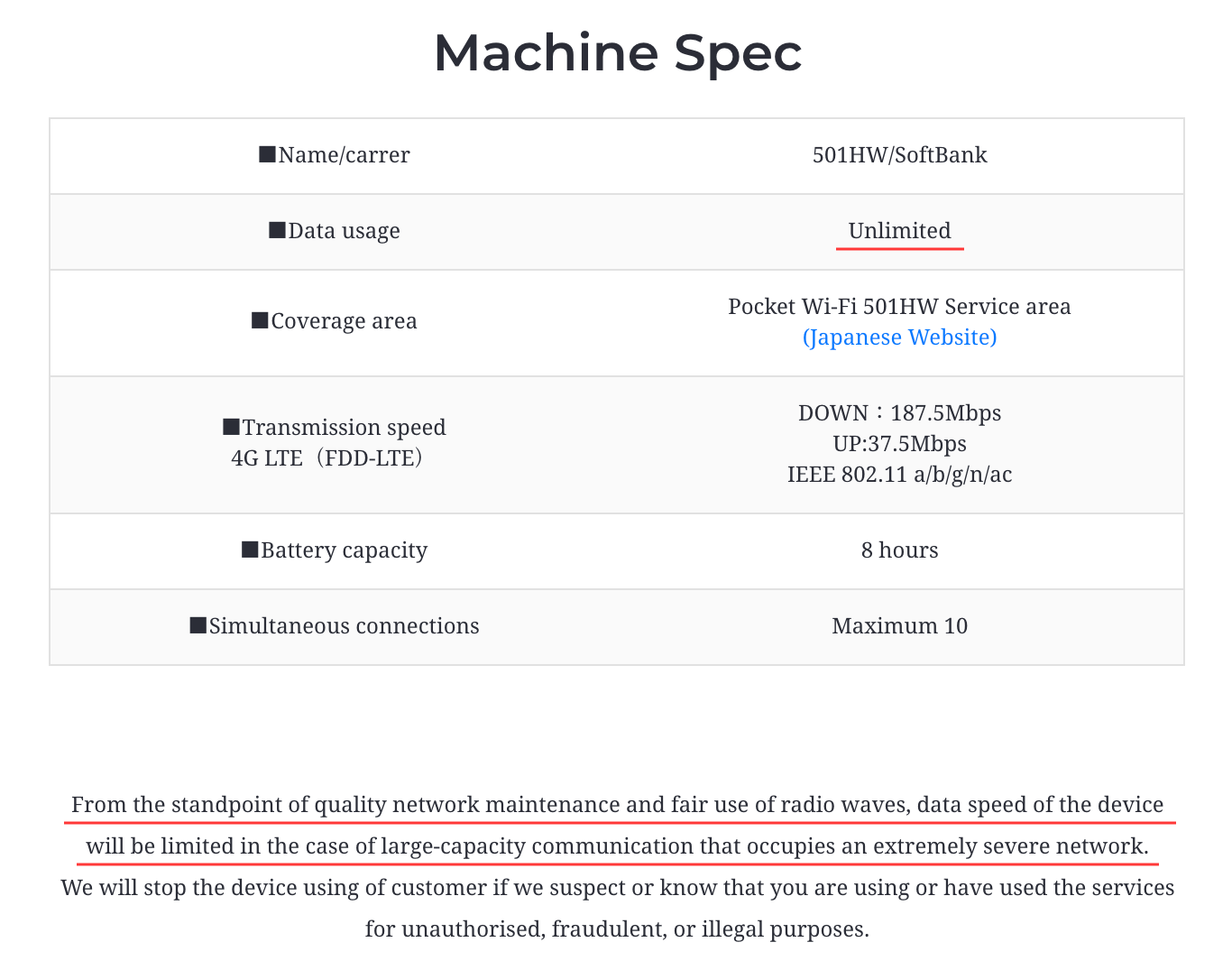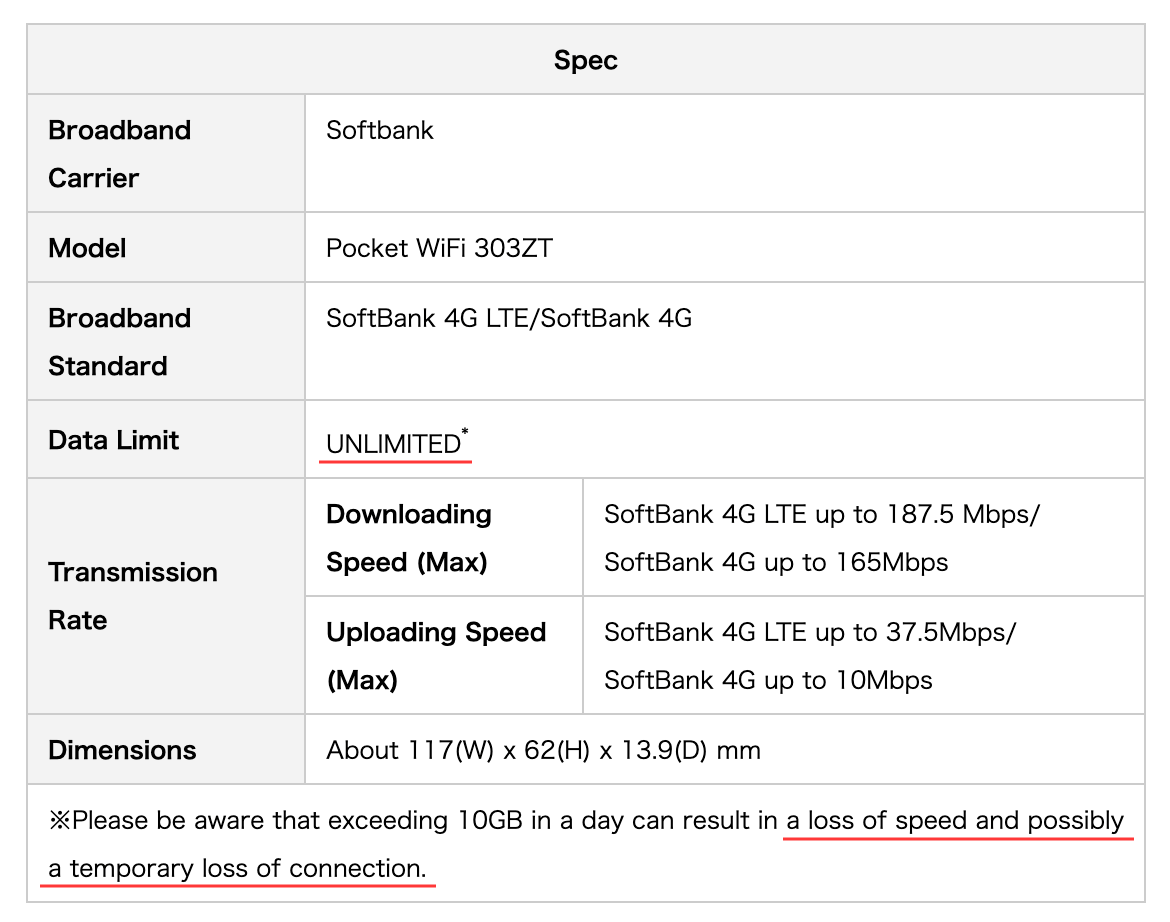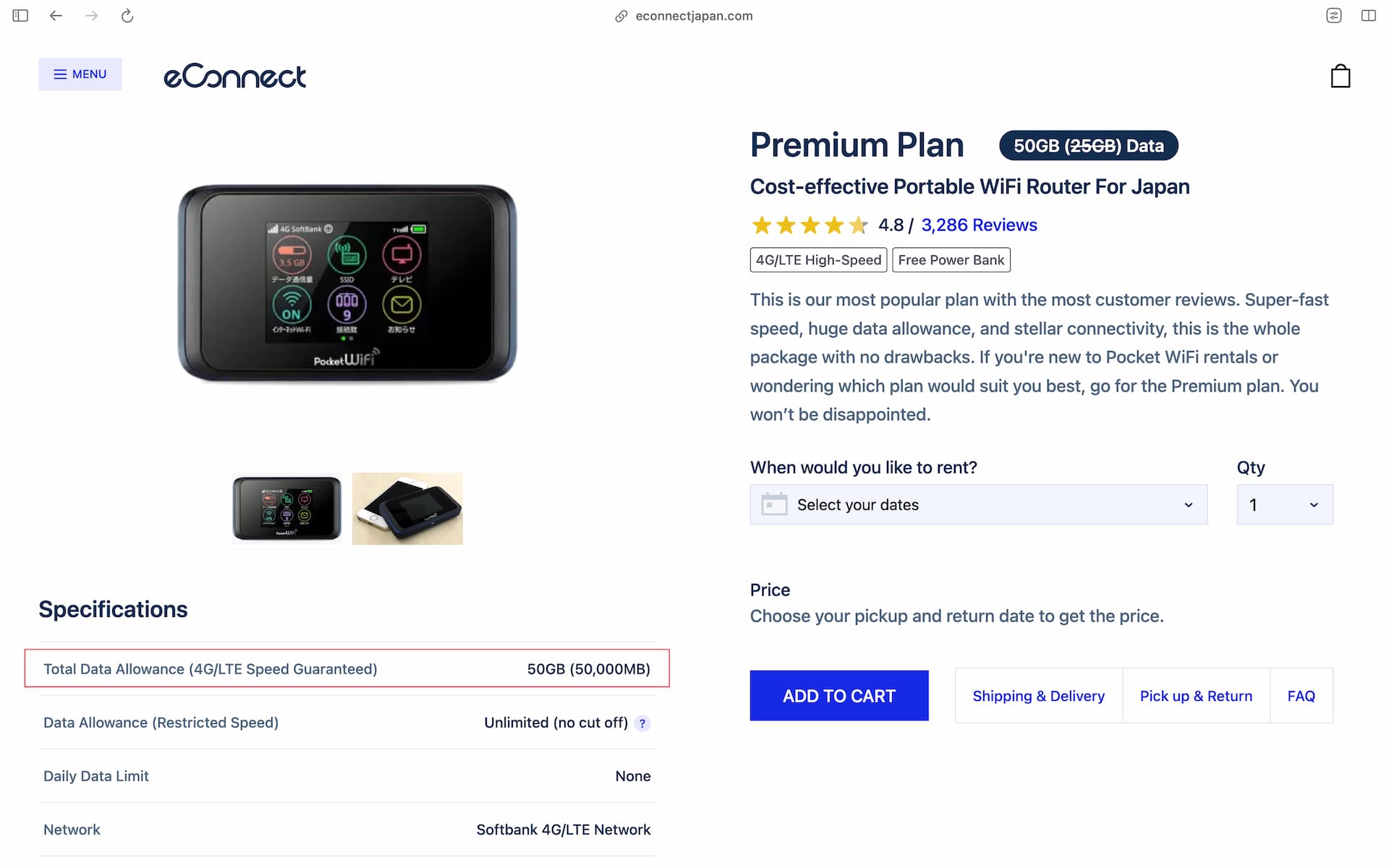What's Fair Usage Policy? Best Advice On Renting a Pocket WiFi in Japan
Let's bring your attention to something you may be overlooking when using mobile internet of any variety. It's a small clause typically hidden away by providers on their websites or contracts. That something is Fair Usage Policy (a.k.a FUP). Let's break down exactly what Fair Usage Policy is and give some real world examples to help bring this relatively unknown concept into light. You can then be better prepared when renting a Pocket WiFi in Japan!
What is Fair Usage Policy
In a nutshell, Fair Usage Policy is a policy utilized internationally by broadband providers of all types of mobile internet to ensure that every subscriber uses mobile data in moderation. When subscribers (users) use large amounts of mobile data, other users in the same network can be adversely affected. In order to prevent those few mass-data consumers from eating into the bandwidth of the other users, the provider will cap said abuser’s data speed. Online activities that could violate Fair Usage Policy include streaming high quality content (e.g. Netflix) for long time of period, sending or downloading extremely large data files, etc..
Although Fair Usage Policy may seem unreasonable, the reasons behind these measures are practical. Network providers implement Fair Usage Policy to ensure that everyone can have the best experience using the internet service. These providers may monitor your internet usage and if you go beyond your fair-use limit, they can restrict your network speed accordingly until the next day or month depending on the plan or contract.
Why is Fair Usage Policy needed for mobile internet?
Most user's home or office internet needs are being met with what is called fixed wireless. Fixed wireless, unlike mobile broadband, operates by connecting a physical cable between two fixed locations via a receiver. This enables data transfer at ultra high speeds but can only be utilized in densely populated areas. Fixed wireless is typically not subject to Fair Usage Policy regulations because the bandwidth supplied to each specific location is controlled by each individual connection
Mobile broadband, however, operates differently. It uses cell towers to transfer data to mobile devices, including cell phones, tablets, eReaders, etc. Imagine a broadband highway with a limited number of lanes. The volume of data used is similar to the number of vehicles on this highway. However, like any highway, there are physical limits to how many cars can run due to the limited lanes available. When the highway gets too crowded by users using too many of these data vehicles, it could result in a traffic jam of activity, thus slowing down everything and affecting all cars on the highway.
To prevent this, mobile network providers (a.k.a carriers) monitor each user's data to maintain optimal efficiency on the broadband highway. If a user is causing excessive traffic (using too much data), the provider may slow down that user's data speed to ensure a balanced usage for all.

Pocket WiFi uses mobile broadband
This may come as a surprise to some but Pocket Wifi devices are not using fixed wireless. Unlike the router in your house/business' WiFi, Pocket WiFi uses a SIM card that operates with, you guessed it, mobile network (cellular data)!
Almost all the Pocket WiFi website's include the Fair Usage Policy somewhere within the fine print in some way shape or form. Below are two examples from two of the bigger Pocket WiFi providers in Japan.

Even if the wording doesn't explicitly state "Fair Usage Policy" it contains the reminder that your data can be slowed if you exceed a certain usage limit.
Here is another example.

Are Providers Lying When They Say "Unlimited Data"?
Marketers aren't technically lying when they advertise Pocket WiFi plans as having "Unlimited Data" because, technically, you still have internet access and can use data even under restrictions.
What they're not telling in large fonts, however, is that you will experience much slower Internet connection after going beyond your fair-use limit. In short, you'll have an uncomfortable experience with the service for the rest of your rental period or at least for that day.
What Should I Look For When Renting Pocket WiFi?
When renting Pocket WiFi, the key is to understand your internet needs while traveling in Japan. Consider what activities you'll be doing online and then estimate the amount of data (in GB) that would suit your needs comfortably. Then, look for plans that guarantee that amount of GB.
Generally speaking, plans advertised as "Unlimited Data" tend to be quite expensive, so it's often more practical and cost-effective to opt for a plan with a specified GB allowance.
On eConnect Japan's Pocket WiFi Rental Plans, there is information on Data Allowance under Specifications. You can check how much data you can get for each plan.

For your information, our Pocket WiFi does not have a daily data cap, only a cap on total data allowance. It should work better for all users because your daily data use could vary from day to day.
At the end of the day, there is nothing you should be afraid of as long as you use a Pocket WiFi within normal limits.
eConnect Japan's Pocket WiFi gives you more than enough data allotment for you to enjoy your stay in Japan.

Safe Travels!

